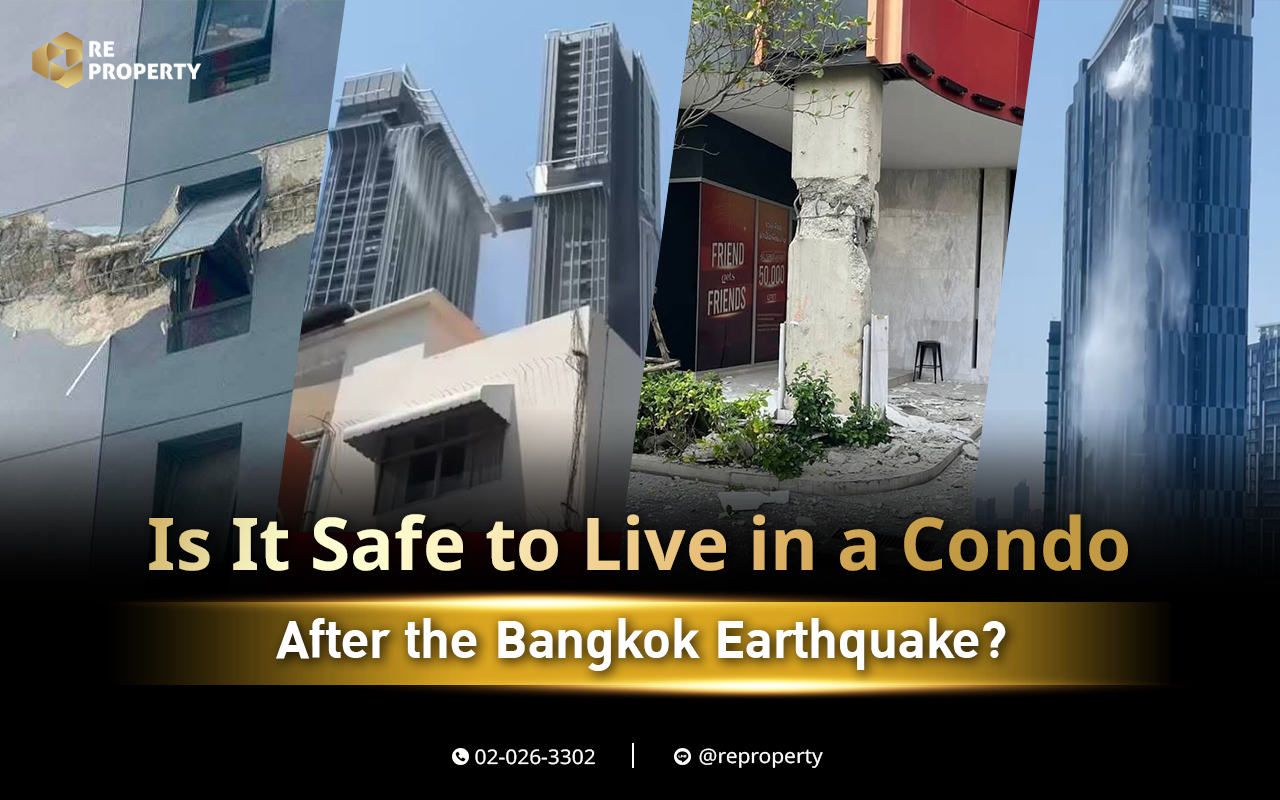The recent Bangkok earthquake in 2025 shook not just the ground—but also the confidence of many residents, especially those living in high-rise condos. Social media flooded with videos and personal accounts of buildings swaying during the tremor. While the earthquake caused no major damage, the experience left people asking: “Is it still safe to live in a condo in Bangkok?” This article explores Bangkok earthquake condo safety, compares condos and houses, and offers clarity on building safety standards in Thailand.

On March 28, 2025, a powerful magnitude 7.7 earthquake struck near Mandalay in the Sagaing Region of Myanmar, with tremors felt across parts of Bangkok and other regions in Thailand.
Despite the structural damage and panic, the majority of Bangkok’s modern high-rise buildings, constructed in accordance with updated building codes, remained intact. However, the event has raised concerns among residents about the earthquake resilience of high-rise living in Bangkok.
This is the question on everyone’s mind. The good news is that modern condos in Bangkok are designed with seismic activity in mind, even though the city is not in a high-risk earthquake zone.
So while the motion during an earthquake may feel scary, the movement is usually intentional and part of the safety design.
Many are now considering if living in a house is safer than a condo after experiencing the quake. Here’s a comparison:
Conclusion? There’s no one-size-fits-all answer. A well-built condo may be safer than an old, poorly constructed house—and vice versa. The construction quality matters more than the building type.
Here are a few practical tips for evaluating condo earthquake safety in Bangkok
If you’re in a high-rise during an earthquake:
Being prepared is key—earthquake safety is about knowledge, not just structure.
Despite the recent panic, the answer is: Yes, it’s still safe to live in a condo—especially newer ones built to modern engineering standards.
Thailand is not located on a major fault line, so earthquakes are rare and usually mild in Bangkok. That said, safety is still a concern that developers, engineers, and building authorities take seriously.
If you’re considering buying or renting a unit, focus on build quality, location, and management. In many cases, modern high-rise condos are safer than standalone houses, particularly in densely populated zones.
The recent earthquake in Thailand 2025 may have caused anxiety, but it also brought attention to something important—knowing how and where we live matters.
Whether you live in a condo or a house in Bangkok, understanding building standards, safety features, and how to respond during a tremor can help you make smart, confident decisions.
For the majority of residents in modern condos, there is no need to panic—but there is a need to stay informed.
Stay informed with the latest expert insights on Bangkok’s thriving real estate market, investment opportunities, and property trends.
To register your property information, please fill out the form below